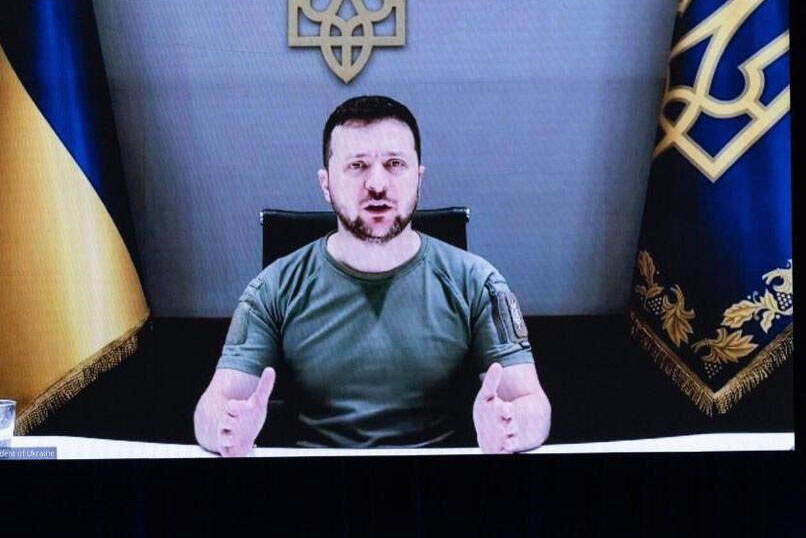New reality of war in Ukraine main focus at NATO Summit
How will NATO continue to guarantee the security of its Allies in a radically changed international security environment? The illegal Russian war in Ukraine was not the only topic to dominate the important NATO Summit. NATO’s deterrence and defence capability in the long term was also high on the agenda. The summit took place from 28 - 30 June in Madrid, Spain.
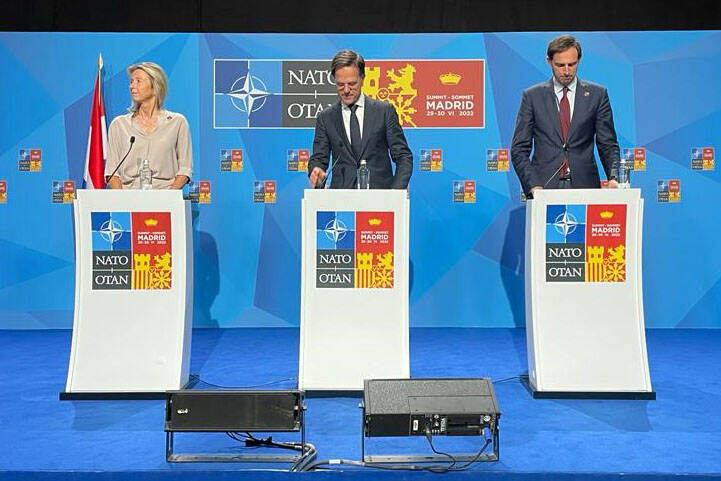
The first working session opened with a video message from Ukrainian president Zelenskyy, in which he addressed NATO Member States’ heads of state and government. Prime Minister Mark Rutte and Ministers Wopke Hoekstra (Foreign Affairs) and Kajsa Ollongren (Defence) were present on behalf of the Netherlands.
Representatives from the 30 member states went on to discuss the situation in Ukraine and the consequences of this Russian aggression for NATO’s deterrence and defence. Present Zelenskyy once again urged his colleagues to act on their promises and, above all, to continue to provide heavy weaponry. The Netherlands emphasised its intent to continue to give Ukraine maximum support. On Tuesday, Netherlands Minister of Defence Kajsa Ollongren and her German counterpart Christine Lambrecht issued a joint statement announcing the provision of 6 more self-propelled howitzers, in addition to the 12 howitzers they have already supplied to Ukraine.
Global security challenges
Russian aggression also has implications for NATO's long-term commitments. At the summit, the Allies adopted the new Strategic Concept. Among other things, this document sets out how NATO intends to carry out its core tasks of deterrence and defence, crisis management and cooperative security in the long term.
Minister of Defence Ollongren: “It is essential to strengthen allied deterrence and defence."
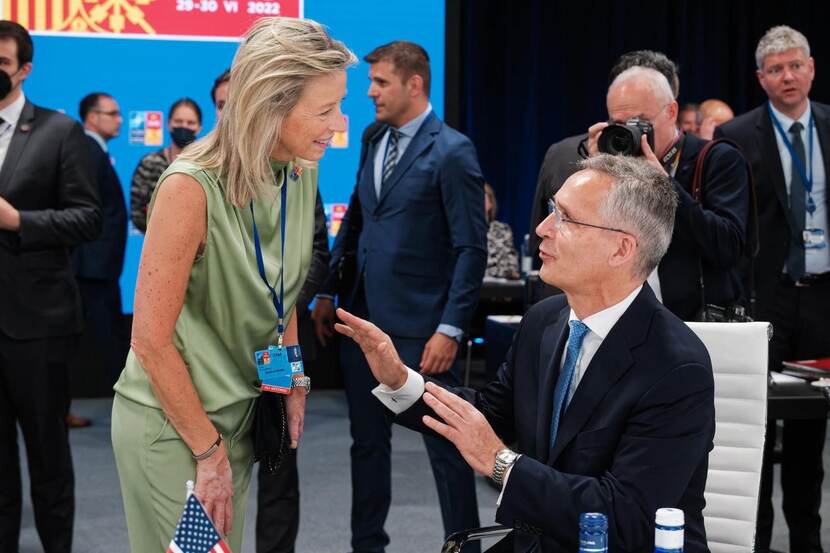
Measures have already been taken in recent months. For example, the decision was made to station battle groups in south-east Europe and, from August, 150 military personnel of 11 Airmobile Brigade will be deployed to Romania. “The Netherlands will also contribute in the longer term. We are currently assessing how we can use our military resources flexibly and sustain our effort for an extended period of time. To this end, we are also very much looking at our commitment to the enhanced Forward Presence in Lithuania, together with Germany”, said the minister.
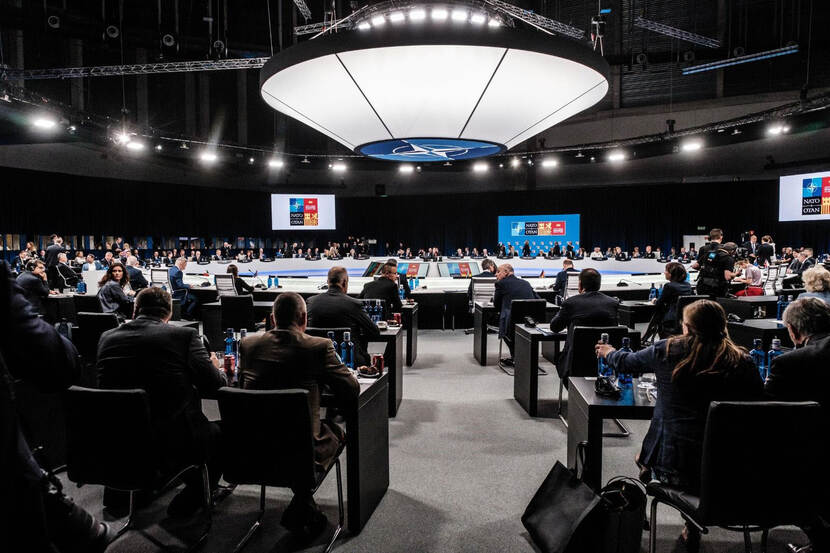
China's increasingly assertive behaviour
While the new reality that has emerged following Russia's invasion of Ukraine has had a big impact, the challenges NATO is facing also originate from other parts of the world; for example, through China's increasingly assertive behaviour in its own region and through undesirable interference with allies and partners. Minister of Defence Ollongren: “We should not only look through the lens of the war in Ukraine, but continue to take a 360-degree approach". From the Dutch perspective, the Strategic Concept also takes an ambitious approach to the intensification of NATO-EU cooperation.
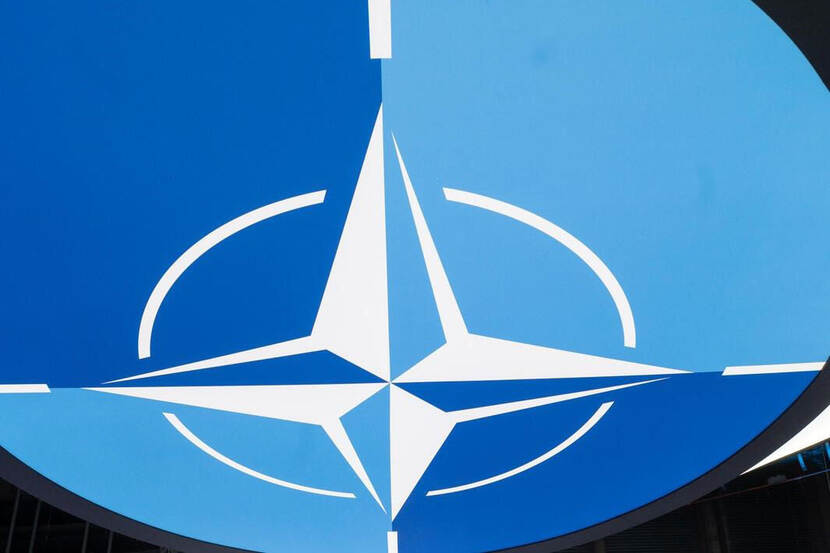
Budget increase
At the 2014 NATO Summit in Wales, it was decided that increased defence spending is critical for the alliance's security and that all Allies would ensure an increase to 2% of GDP in their respective defence budgets by 2024. Security developments since 2014 have only increased the importance of this drive towards the 2% norm. At this week’s summit, the Netherlands was able to report that it would meet the 2% NATO standard in 2024 and 2025. Minister Ollongren did, however, stress the importance of ensuring that more funding is demonstrably directed towards tackling problems and strengthening NATO capabilities.
Accession of Finland and Sweden
On the eve of the summit, it was announced that Turkey has agreed to Sweden and Finland joining NATO. Both countries recently submitted official applications for NATO membership, following increased national security concerns as a result of the Russian invasion of Ukraine. Turkey was the only ally to object to these applications. The accession protocol is expected to be signed in Brussels on Tuesday.
